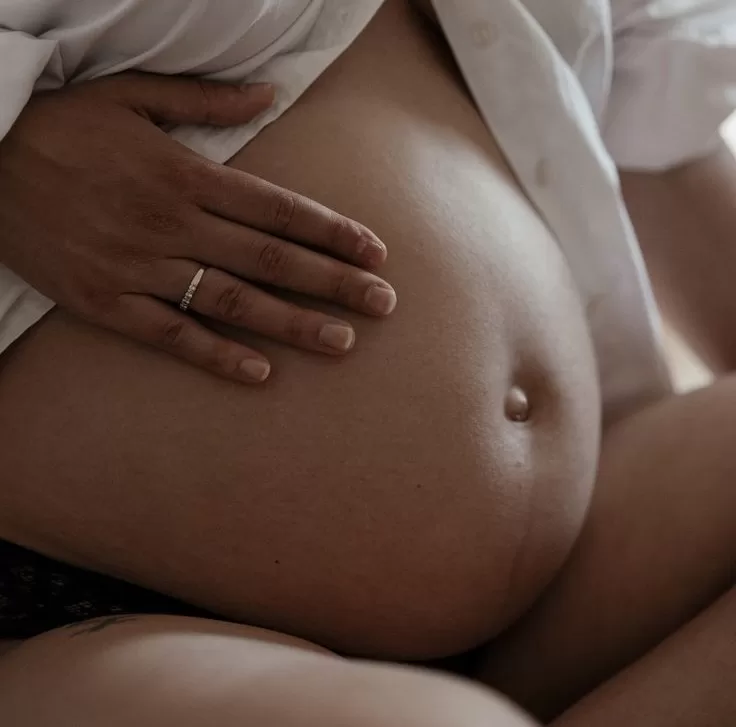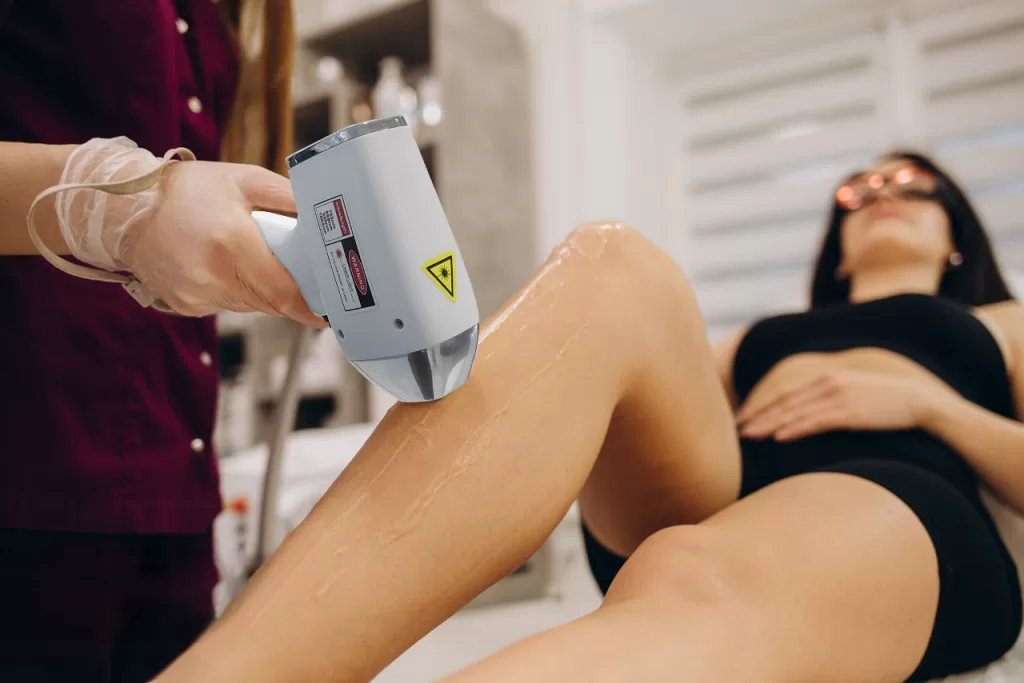Introduction
Pregnancy is a transformative experience, not just emotionally and physically, but also in terms of grooming routines. For many women, laser hair removal is a go-to solution for permanent hair reduction. But the big question arises: can you get laser hair removal while pregnant? As hormones fluctuate, hair sprouts in unfamiliar places, and managing it becomes more of a hassle. This leads many expecting mothers to explore whether laser hair removal treatments are safe during this delicate phase. Are your worries justified? Let’s explore what science, dermatologists, and industry experts have to say, and how you can navigate hair removal methods during and after pregnancy.
What Is Laser Hair Removal and How Does It Work?
Laser hair removal is a non-invasive cosmetic procedure that uses highly concentrated light beams to target and destroy hair follicles. The laser emits light absorbed by melanin in the hair, converting it to heat and effectively damaging the follicle to inhibit future growth. The laser hair removal method offers long-term hair reduction with fewer ingrown hairs, thus leading to smoother skin with reduced shaving or waxing.
The commonly treated areas such as the underarms, legs, Bikini line or pubic area, upper lip and facial areas. These treatments are typically spaced over several sessions to align with the hair growth cycle. While highly effective, the process requires consistency and care, especially if considering it during sensitive stages like pregnancy.
Hormonal Changes During Pregnancy and Hair Growth

Pregnancy hormones play a significant role in altering your body's usual rhythm, and hair growth is no exception. The surges in estrogen and progesterone levels can lead to thicker, faster-growing hair in areas such as the stomach, face, back, and pubic region.
These changes are usually temporary. Increased body hair is common, but it often sheds after giving birth. Hair texture and growth cycles may vary drastically across trimesters. Many women also notice less hair fall due to prolonged growth phases (anagen phase). However, this hormonal influx often leads to the temptation to seek permanent or semi-permanent hair removal methods.
Is Laser Hair Removal Safe During Pregnancy?

The short answer? Most experts suggest avoiding it. There is currently no conclusive scientific evidence confirming the safety of laser therapy during pregnancy. As such, the FDA and renowned dermatological associations do not officially recommend it.
During pregnancy, women often experience increased blood flow and heightened skin sensitivity, which can make the skin more reactive to treatments. Additionally, hormonal changes may trigger hyperpigmentation, such as melasma or dark patches, increasing the risk of uneven results. These factors, combined with an altered skin response, can elevate the chances of post-treatment irritation or burns, making laser hair removal a riskier option during this time.
As a result, the utilization of laser hair removal during pregnancy is generally discouraged. Most obstetricians and gynecologists will recommend that pregnant women postpone getting laser hair removal treatment until after delivery, or use other safe alternative hair removal products. While the laser targets only the hair follicle and not the uterus or fetus, the lack of comprehensive studies means risks, albeit minimal, cannot be entirely ruled out.
What Do Dermatologists and Medical Experts Recommend?
A majority of dermatologists and OB-GYNs agree that laser hair removal during pregnancy should be postponed. The American Academy of Dermatology (AAD) recommends deferring all non-essential cosmetic procedures during pregnancy.
According to Healthline's review on laser hair removal in pregnancy, there is no definitive data confirming whether laser hair removal can cause miscarriage, but most medical experts err on the side of caution. Some clinics might consider performing face laser hair removal while pregnant during the second trimester, but this is the exception, not the rule. It's always best to consult your personal physician before undergoing any form of laser treatment while expecting.
Safe Hair Removal Alternatives While Pregnant
Since laser hair removal isn't recommended during pregnancy, what options are available? Here we offer safe alternatives. Though they are not as long-lasting as lasers, they provide safer alternatives until professional treatments can resume postpartum.
Shaving
Shaving is fast, easy, and risk-free, and is best for legs, underarms, and the bikini line.
Waxing
It's more effective to remove unwanted hair for longer periods, but it can be painful. Skin sensitivity may increase discomfort during pregnancy.
Tweezing & Trimming
They are ideal for small areas like the face and eyebrows. Keep in mind to avoid the use of harsh chemicals during treatment.
Hair Removal Creams
Such creams are not all pregnancy-safe. We should always read labels and do a patch test to rule out an allergic reaction before purchasing and using.
Laser Hair Removal After Pregnancy: When Is It Safe to Resume?
Postpartum is a better time to consider resuming laser hair removal treatments. However, timing is crucial. It’s recommended to wait 3–6 months postpartum, or until hormone levels have stabilized, before resuming laser hair removal treatments. Breastfeeding mothers should exercise extra caution, particularly if they’re experiencing skin sensitivity. To ensure safety and effectiveness, it’s essential to consult a dermatologist before undergoing any post-pregnancy laser procedures. Treatments are most effective once your hair returns to its usual growth cycle, which can vary after childbirth.
FAQs: Laser Hair Removal and Pregnancy-Related Concerns
Q1: Is it worth getting laser hair removal before pregnancy?
Yes. Many women choose to complete their sessions prior to conceiving to minimize maintenance. This preemptive approach helps avoid the hassle of increased hair growth during pregnancy.
Q2: Can you get laser hair removal while breastfeeding?
There's no evidence of harm, but many clinics delay treatment during breastfeeding due to continued hormonal fluctuations and potential skin sensitivity. For more, see our dedicated guide on laser hair removal while breastfeeding.
Q3: Is it safe for pregnant laser technicians to keep working?
Generally, yes. The laser energy does not penetrate beyond the skin, so with proper protective equipment, exposure risk is negligible.
Q4: What are the potential risks of laser hair removal during pregnancy?
The potential risks such as skin burns, pigmentation disorders, unpredictable healing, and other unknown effects on the fetus (though indirect exposure is minimal).
Q5: How soon after giving birth can I get laser hair removal?
A good rule of thumb is to wait at least 2–3 months postpartum(the waiting duration varies from person to person) and ensure you’re not experiencing hormonal imbalances. Consult with your physician and laser technician.
EosICE® Max: A Safe and Effective Hair Removal Machine From PZLASER
When you're ready to return to laser hair removal after pregnancy, choosing the right machine is very important. PZLASER offers the advanced EosICE® Max laser hair removal machine, designed to combine efficiency, comfort, and safety.
The EosICE® Max hair removal device utilizes multiple wavelength diode technology (755nm, 808nm, 940nm, and 1064nm) to effectively target various hair depths and skin types, ensuring versatile treatment options. It features a medical-grade four-way cooling system to minimize burn risks and deliver a virtually painless experience, even for sensitive skin. With intelligent software offering customized modes tailored for different skin tones and treatment areas, and high-power energy support, this device ensures fast yet precise treatments for clinics seeking both safety and efficiency.
This EosICE® laser hair removal brand is trusted by medical professionals in over 200 countries with CE and FDA certification. It's ideal for postpartum women ready to resume treatments, it offers unmatched comfort and results. Clinics looking to upgrade their technology for postpartum clients will find it a comprehensive solution from speed to safety.
Conclusion
While laser hair removal offers a compelling long-term solution, it’s best to hit pause during pregnancy. Don't worry about it. You can try other traditional safe methods when expecting a baby. Otherwise, you can plan ahead and complete treatments before conception or confidently resume after birth.
For postpartum hair removal care, the EosICE® Max by PZLASER presents an alternative option designed with safety and efficacy in mind. Prioritize your well-being, consult your healthcare provider before entering into a laser clinic, and when the time is right, invest in a solution that aligns with both your aesthetic goals and health.






